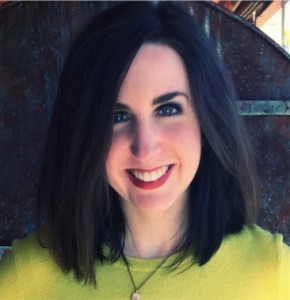- Calls to this hotline are currently being directed to Within Health, Fay or Eating Disorder Solutions
- Representatives are standing by 24/7 to help answer your questions
- All calls are confidential and HIPAA compliant
- There is no obligation or cost to call
- Eating Disorder Hope does not receive any commissions or fees dependent upon which provider you select
- Additional treatment providers are located on our directory or samhsa.gov
Toxic Relationships & Setting Healthy Boundaries in Recovery

Contributor: Courtney Howard, B.A., Director of Operations & Business Development at Eating Disorder Hope and Addiction Hope.
In recovery, it is important to examine your interpersonal relationships and determine which are healthy. Those are the relationships to foster in recovery, and the people who can best support you on your journey.
When doing this inventory of your relationships, it is also important to isolate which are toxic and harmful to your recovery process.
As difficult as it might be, letting go of these toxic relationships will likely end up being a turning point as you embrace your new life in recovery.
When to Let Go
It can be hard to let go of relationships, especially if someone has been in your life for a long time. It might even feel impossible to end certain relationships. However, being able to recognize toxic relationships and instead surround yourself with people who support your recovery is a sign of healing.
Often, relationships will not be purely toxic. You might have had lots of good times with this friend or thought you would spend the rest of your life with this partner. Pinpointing that you are dealing with a toxic relationship and determining how to let it go might be something that you need to process with your treatment team.
Alternatively, it might be simple identifying and ridding yourself of more blatantly toxic relationships. It is easier to block the friend who does nothing but trigger and enable your eating disorder.
If you feel lonely, it can feel like a good idea to reach out to a toxic friend. You might think, “Well, Becky is toxic, but at least she is better than being alone right now.” That argument might be valid if you feel the urge to self-harm and no other coping tools are working, or if there are other urgent reasons to connect with someone. However, in general, it is best to let go of toxic people and instead build up relationships with those in your life who are going to support your recovery.
Letting go of these relationships can be hard at first but will ultimately lead to the development of healthier, more mature, fulfilling relationships that encourage your personal growth.
How to Establish Boundaries
Whether you are deali ng with a friend, family member, or romantic partner, it is important to set healthy boundaries. Many people struggling with eating disorders have trouble setting boundaries, so do not be discouraged if this is difficult at first.
ng with a friend, family member, or romantic partner, it is important to set healthy boundaries. Many people struggling with eating disorders have trouble setting boundaries, so do not be discouraged if this is difficult at first.
When first setting
boundaries, start simple. If you are in a safe environment but feel uncomfortable with something that was said or feel like your boundaries have otherwise been crossed, let the person you are speaking with know this. Do not hold it in out of fear of hurting their feelings or coming off as rude. It is important to speak your truth.
Setting boundaries can also mean not overextending yourself. If your friend invites you to a party that you do not want to attend for whatever reason, you can respectfully decline the invitation. Giving yourself permission to say “no” to things is an example of establishing healthy boundaries and is also a form of self-care.
Early in recovery, you can even share with your loved ones that you will be working on establishing healthy boundaries in all of your relationships moving forward. By sharing this information, your friends and family members will not be as surprised or taken off guard when you begin verbalizing your boundaries in the moment.
This is a two-way street, so keep in mind that your loved ones might be establishing their own boundaries at this time. Supporting this and honoring their boundaries can be just as important as establishing your own.
If someone is continually not respecting the boundaries you set, this is likely an example of one of the toxic relationships that you might want to consider letting go of in recovery.
Learning & Growing
 When sick in your eating disorder, emotional vampires might have worked their way into your life who sucked the energy and positivity right out of you. In recovery, you can be more selective about who you let into your life and establish healthy boundaries with loved ones.
When sick in your eating disorder, emotional vampires might have worked their way into your life who sucked the energy and positivity right out of you. In recovery, you can be more selective about who you let into your life and establish healthy boundaries with loved ones.
Letting people know when you feel uncomfortable or feel like your boundaries have been crossed might be uncharted territory for you. That is okay. Learning is part of the process, including learning about yourself, your needs, and how to effectively communicate these needs to others.
Eating disorder recovery comes with an infinite number of ways to grow. Free yourself from toxic relationships so you can make room in your life and in your heart for people who deserve to be there.
Community Discussion – Share your thoughts here!
What tools have been helpful for you in identifying and letting go of toxic relationships?
 About the Author: Courtney Howard is the Director of Operations & Business Development at Eating Disorder Hope and Addiction Hope. She graduated summa cum laude with a B.A. from San Diego State University, holds a paralegal certificate in Family Law, and is a Certified Domestic Violence Advocate. After obtaining her certification as a life coach, Courtney launched Lionheart Eating Disorder Recovery Coaching in 2015 and continues to be a passionate advocate for awareness and recovery.
About the Author: Courtney Howard is the Director of Operations & Business Development at Eating Disorder Hope and Addiction Hope. She graduated summa cum laude with a B.A. from San Diego State University, holds a paralegal certificate in Family Law, and is a Certified Domestic Violence Advocate. After obtaining her certification as a life coach, Courtney launched Lionheart Eating Disorder Recovery Coaching in 2015 and continues to be a passionate advocate for awareness and recovery.
The opinions and views of our guest contributors are shared to provide a broad perspective of eating disorders. These are not necessarily the views of Eating Disorder Hope, but an effort to offer discussion of various issues by different concerned individuals.
We at Eating Disorder Hope understand that eating disorders result from a combination of environmental and genetic factors. If you or a loved one are suffering from an eating disorder, please know that there is hope for you, and seek immediate professional help.
Last Updated & Reviewed By: Jacquelyn Ekern, MS, LPC on October 30, 2016
Published on EatingDisorderHope.com

The EatingDisorderHope.com editorial team comprises experienced writers, editors, and medical reviewers specializing in eating disorders, treatment, and mental and behavioral health.

